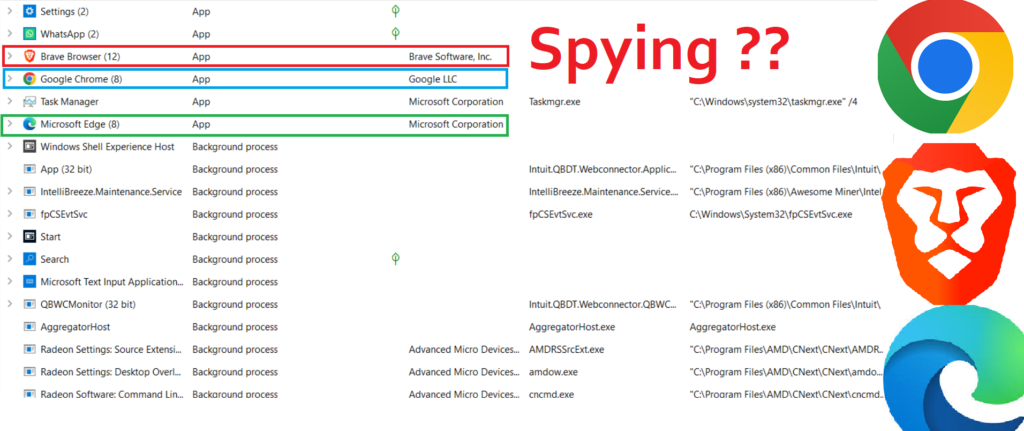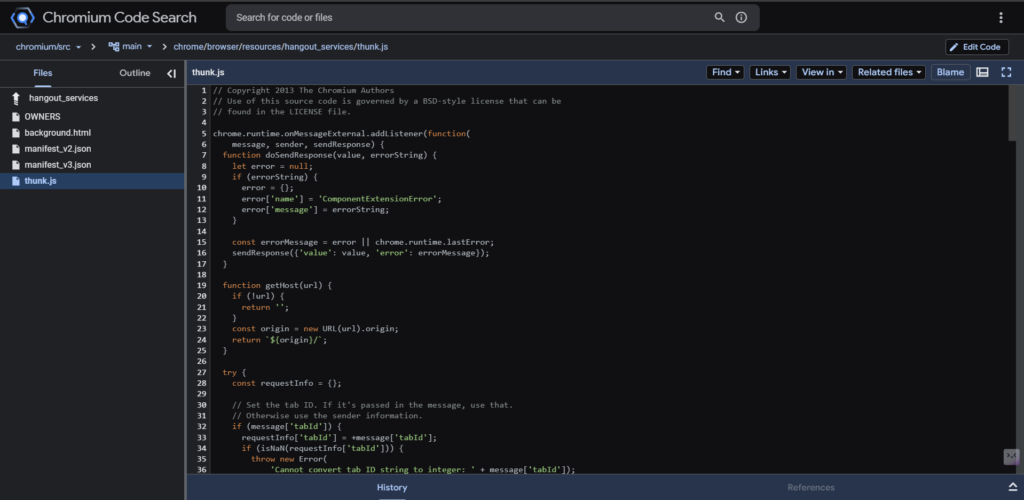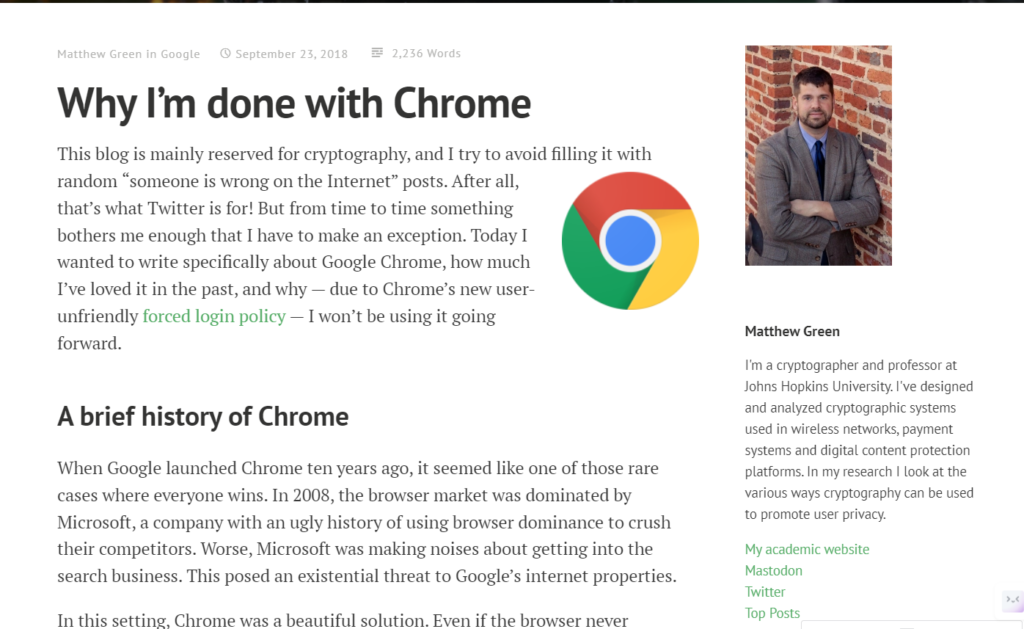Even when it comes to relatively basic browser fuctionalities , many users are unaware that their data is being shared with Google while using modern browsers, which raises questions about the need for more knowledge regarding data collection and sharing methods.

Let us hear from Luca Casonato on this subject before we jump to any conclusions.
“So, Google Chrome provides complete access to system/tab CPU, GPU, and memory consumption for all *.google.com websites. It also offers a logging backchannel and access to comprehensive processor information”
Luca Casonato

The only website to which this API is accessible is *.google.com.
This is fascinating because it clearly goes against the belief that browser vendors shouldn’t favour their websites over those of others.This concept is made a law by the DMA: browser vendors, who operate as the internet’s gatekeepers, must provide equal access to all users.
This increased release of information to Google properties alone could be seen as a violation of the DMA, depending on how you read it. For example, Zoom is currently at a disadvantage compared to Google Meet since they are unable to offer the same CPU debugging feature.
Note that this feature is limited to *.google.com domains in Microsoft Edge also . And to all of those who are always shouting, “Use Brave!!!” In this regard, Brave behaves similarly to Chrome and Edge. Brave also comes with an extension pre-installed that lets Google get this data only from *.google.com.

For those who are curious, this can be done using an integrated Chrome extension that is not visible in the extensions window and cannot be disabled. The following URL leads to the source code: https://source.chromium.org/chromium/chromium/src/+/main:chrome/browser/resources/hangout_services/
Expert in cybersecurity Matthew Green had previously advised against using Google Chrome because of its tendency to prioritise Google’s own services over third-party ones. This prejudice may restrict users’ online freedom and risk their security.

As a security researcher, Green has continuously brought attention to the possible dangers of depending just on one browser and search engine, as well as the restricted environment of Chrome. His cautions serve as a timely reminder of the value of encouraging open standards in the tech sector and expanding digitally.
In one of his articles, Mathew framed “User consent matters. For ten years I’ve been asked a single question by the Chrome browser: “Do you want to log in with your Google account?” And for ten years I’ve said no thanks. Chrome still asks me that question — it’s just that now it doesn’t honor my decision.”
One argument is that since Google already spies on you through partnerships, its large advertising network, and cookies, forcing your browser to be signed in is not a huge problem. The Chrome update, according to someone I respect, is “forcing you wear two name tags instead of one.” This criticism, in my opinion, is absurd on both a moral level (just because you are invading my privacy does not mean it is okay to add a major new breach) and an objective level.
Google has invested millions of dollars in giving Chrome and Android more tracking capabilities. They are definitely producing the data they want, thus they are not doing this for pleasure.
This behaviour has been caused by a code that has existed for roughly ten years. Google has provided proof to its presence and the fact that it cannot be turned off. Even though this method has been around for a long time, concerns regarding data privacy transparency are still very important in 2024.


